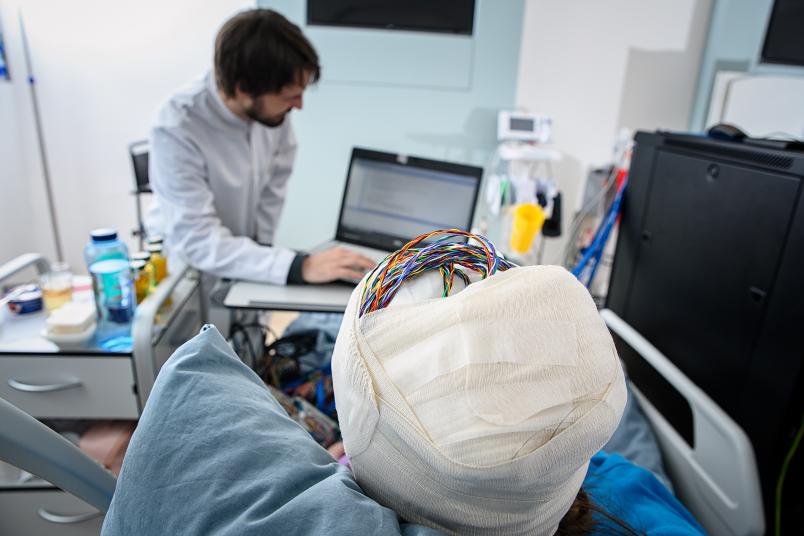
Neuropsychology
Why a Spider is Scarier in the Cellar Than in the Therapy Room
Letting go of learned fears is difficult. New research findings reveal that the environment in which we learn the fear could also play a crucial role in unlearning it.
When we learn something, we can usually recall it in any new context: If someone passes their driving test in France, they can also drive a car in Germany. However, the context plays a role when it comes to getting rid of something we have learned, such as a phobic fear. “Someone with a fear of spiders is afraid of them no matter where they encounter them. People who have successfully overcome their fear of spiders in psychotherapy are often terrified again when they encounter a spider in their own basement,“ explains Professor Nikolai Axmacher, neuropsychologist at Ruhr University Bochum, Germany. He and his team use insights into the depths of the brain via implanted electrodes to track down this effect. Rubin, the science magazine of Ruhr University Bochum, reports on this in the special issue on extinction learning.
Electrodes in the brain record neural activity
What happens in the brain when we learn or unlearn something? Researchers are investigating these questions using functional magnetic resonance imaging on healthy subjects. However, Axmacher gains a higher time resolution and more direct insights with intracranial EEG recordings, where electrical signals from the neurons in the brain are measured directly by electrodes, while the participant – in this case an epilepsy patient – takes part in an experiment.
To apply this method, Axmacher’s team is cooperating with Ruhr Epileptology at Knappschaftskrankenhaus Bochum led by Professor Jörg Wellmer. The neurologist treats patients whose epilepsy cannot be controlled with medication. To plan the surgical procedure precisely, the specialists must first find out exactly where the point of origin of the patient’s epileptic seizures is located. To do this, they insert electrodes into the suspected areas of the brain and measure the electrical activity in these areas. They then have to wait for an epileptic seizure to occur under observation. During this waiting period in the hospital, the Collaborative Research Center team invites suitable patients to take part in a learning experiment.
Electrical appliances in budget hotels
To investigate the context dependence of learning and unlearning, the research team came up with an elaborated story about a tourist travelling to various places and encountering defective or intact electrical appliances. Some appliances are broken and give the woman an electric shock, causing her to let out a loud scream. The scream represents an aversive stimulus for the subjects. They quickly learn which appliances are defective in which contexts. In a second round, the woman travels to other destinations and devices that were previously faulty are now intact. The exciting question: What do the test subjects expect from these electrical devices at completely new destinations?
50 test subjects with implanted electrodes were included in the study. The results so far surprised the researchers, for example, because they contradicted similar animal studies.